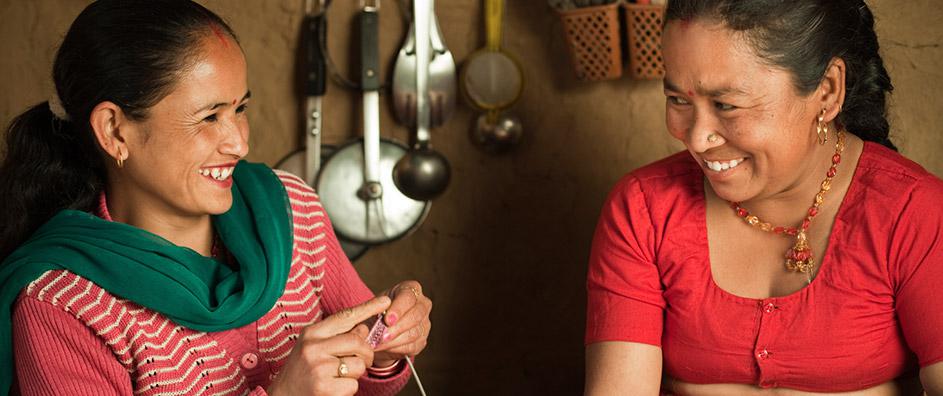In the exploration of the Bahá’í teachings, one poignant metaphor permeates the discourse: “The Palaces of the Rich and the Comfortable Cottages of the Poor.” This vivid imagery compels contemplation on the socio-economic disparities that characterize contemporary society. It urges an examination of the ramifications arising from wealth accumulation, juxtaposed against the relative deprivation experienced by others. To engage with these themes through a Bahá’í lens is to embark on a transformative intellectual journey, one that engenders empathy and incites motivation for equitable engagement.
The Bahá’í faith emphasizes the oneness of humanity and the interdependence of individuals within societal frameworks. Central to this tenet is the conviction that all people harbor an inherent dignity, regardless of their socio-economic status. The juxtaposition of opulence and poverty raises critical inquiries about the moral and ethical implications of material wealth. The Bahá’í perspective does not vilify the affluent; rather, it implores them to recognize their unique potential to effectuate positive change in the lives of the less fortunate.
One observes that in affluent societies, luxurious “palaces” not only symbolize material excess but also the isolation that can ensue from wealth. As the rich repose in their extravagant dwellings, they may unwittingly distance themselves from the chronic struggles faced by the impoverished. This detachment is detrimental, as it fosters a lack of awareness regarding the challenges faced by those in less fortunate circumstances. The Bahá’í teachings assert that true prosperity lies not merely in accumulating wealth but in the dissemination of resources and the uplifting of the marginalized. It is posited that those endowed with affluence bear the responsibility to utilize their resources judiciously, creating avenues for empowerment rather than engendering dependency.
Conversely, the “Comfortable Cottages of the Poor” evoke resilience amidst adversity. Despite their limited means, these dwellings symbolize not just survival but also the spirit of community, interdependence, and shared aspirations. Those residing within these humble abodes often cultivate a profound sense of solidarity, transcending material limitations with an unyielding commitment to mutual aid. This aspect resonates deeply within Bahá’í teachings, which underscore the importance of unity and collaboration among individuals, regardless of their socio-economic circumstances.
This nuanced examination finds its roots in the concept of justice, a cornerstone of Bahá’í teaching. Justice, as articulated within these teachings, transcends mere legalistic interpretations. It embodies a holistic ethos, advocating for equitable distribution of resources and opportunities. Abject poverty and extravagant wealth coexist, creating an ethical conundrum that Bahá’í principles actively seek to address. A vital aspect of Bahá’í engagement with injustice involves active participation in social and economic development, thereby fostering a milieu where individuals can realize their full potential.
The Bahá’í community is thus tasked with evolving a global consciousness that recognizes economic disparities and actively works to mitigate them. As such, individuals are encouraged to foster a paradigm shift from one of competition to one of collaboration. This is entailed in the shift from individualistic pursuits of wealth to a more cohesive enterprise that prioritizes collective well-being. Through systematic outreach and education, the Bahá’í community aims to elucidate these dynamics, emphasizing that injustices are not isolated phenomena but intertwined within the fabric of human existence.
Central to this pursuit is the cultivation of virtues that transcend material considerations. Empathy, compassion, and generosity are esteemed qualities that guide Bahá’í interactions. These virtues serve as a bridge, forging connections between individuals of disparate socio-economic standings. The Bahá’í teachings posit that acts of kindness and benevolence can dissolve barriers, enabling individuals to view each other through the lens of shared humanity rather than as mere indicators of wealth. In doing so, the community can collectively dismantle the societal structures that perpetuate inequality.
Moreover, the Bahá’í perspective encourages the active questioning of prevailing paradigms surrounding wealth and success. It posits that traditional measures of prosperity must be redefined to align more closely with principles of justice and equity. This mandates a critical reevaluation of what constitutes “success” in society. The relentless pursuit of material gain often obfuscates deeper values like personal development, social responsibility, and community well-being. To this end, the Bahá’í community advocates for a holistic reimagining of success, one that champions enrichment of the soul and the collective upliftment of all humanity.
In conclusion, the metaphor of “The Palaces of the Rich and the Comfortable Cottages of the Poor” encapsulates a profound dialectic inherent within Bahá’í teachings. It invites an examination of societal inequities while simultaneously urging a collective awakening to our shared responsibilities. By nurturing a spirit of compassion and enacting a commitment to justice, the Bahá’í community endeavors to construct a more equitable world. Ultimately, this vision is one wherein every individual, irrespective of their wealth, can contribute to the tapestry of humanity, inducing a shift in perspective that transcends materialism, fostering a culture of shared prosperity and enduring connections. This rich engagement not only piques curiosity but also ignites a resounding call for action, resonating with the ethos of a unified global community committed to justice and equity.
